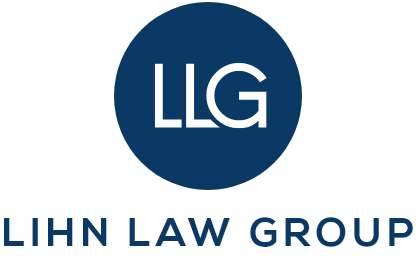Imagine this: You’ve worked hard all your life, saved diligently, and now face the reality of needing long-term care for yourself or a loved one. Balancing the fears of paying for long-term care with the thought of losing your assets to qualify for Medicaid can be daunting. At Lihn Law Group, we understand these concerns and are here to help you navigate long-term care/Medicaid planning effectively.
The High Cost of Long-Term Care
The need for Medicaid planning often stems from the significant costs associated with long-term care. Whether in a nursing home, assisted living facility, or through in-home care, these services can cost six figures annually. According to a 2023 study, in Arizona, the average monthly cost for a non-medical home health aide is $7,055; assisted living is $5,500; and a private nursing home room is $9,946. The only way to cover these costs is with your life savings, long-term care insurance, or qualifying for Medicaid. Without proper planning, these expenses can quickly deplete your life savings, leaving you financially vulnerable.
The Basics of Medicaid
Medicaid is a joint federal and state program assisting with long-term care and medical costs for medically eligible individuals with limited income and resources. Eligibility criteria vary by state, but generally, applicants must meet certain income and asset thresholds. In Arizona, our Medicaid agency is the Arizona Health Care Cost Containment System (AHCCCS), and the division of AHCCCS providing coverage for long-term care costs is the Arizona Long Term Care System (ALTCS). Understanding ALTCS requirements is the first step in effective Medicaid planning. Meeting the eligibility criteria requires careful planning, a thorough understanding of the rules, and strategic implementation of the available strategies.
Income and Asset Limits
To qualify for Medicaid, applicants must meet strict income and asset limits. While these limits vary by state, generally, an individual must have countable assets below $2,000. Certain assets, like your primary home and personal belongings, might be exempt from this calculation. Understanding which assets count towards these limits is vital for effective Medicaid planning. When a potential applicant is married, there is a separate set of rules dictating the range of assets the spouse not needing the care is allowed to have. The gross income limit in Arizona for 2024 is $2,829 a month. If an applicant’s income exceeds that limit, however, there are affirmative legal planning techniques available to render someone income eligible.
The Five-Year Look-Back Period
One of the most critical aspects of Medicaid planning is understanding the five-year look-back period. Medicaid reviews any asset transfers made within this period to determine if they were given away or sold for less than fair market value. If such transfers are found, you may face a penalty period during which you are ineligible for benefits. Proper planning can help avoid these penalties and ensure you remain eligible for Medicaid when you need it most.
Effective Strategies for Asset Protection
- Asset Transfers: Transferring assets to certain loved ones or trusts, under specific circumstances, may be appropriate, but timing is critical due to the five-year look-back period. Proper planning ensures you avoid penalties and maintain eligibility.
- Irrevocable Trusts: These trusts can shield your assets from Medicaid’s asset count. Assets placed in an irrevocable trust are protected, this allows you to qualify for Medicaid without sacrificing your estate. This approach, however, must be done proactively, in advance of needing long-term care.
- Annuities: Converting assets into a specific type of Medicaid-compliant annuity can help reduce your countable assets while providing a steady income. Ensure your annuity meets Medicaid’s strict criteria with the guidance of a knowledgeable attorney.
- Personal Care Agreements: Compensating a family member for caregiving through a formal agreement not only ensures you receive care but also reduces your countable assets, keeping them within the family.
- Spend Down Strategy: This involves using excess assets to pay off debts, make home improvements, or purchase exempt items, thereby reducing countable assets and improving your quality of life.
- Special Needs Trusts: For individuals with disabilities under the age of 65, a special needs trust can preserve assets while ensuring Medicaid eligibility. Managed by a non-profit, these trusts use the funds for the beneficiary’s needs without impacting eligibility.
The Role of Professional Guidance
Navigating Medicaid planning on your own can be risky. Missteps can lead to ineligibility or financial penalties. That’s why consulting with an experienced elder law attorney is crucial. We ensure your strategies are sound and compliant, giving you peace of mind.
Real-Life Example: Robert and Jane’s Story
Consider Robert and Jane, both in their late 60s, facing the progression of Jane’s early-onset Alzheimer’s disease. Since Jane has a propensity for wandering out of the house, Robert could no longer safely provide care at home. Robert and Jane saved comfortably from a lifetime of each of them working and building a nest egg for retirement. Robert, however, was anxious about the prospect of paying for memory care for Jane for the remainder of her life and continuing to pay his mortgage, household expenses, and his own cost of living. By working with our office, Robert and Jane preserved the vast majority of assets while obtaining ALTCS benefits for Jane. This allowed Robert and their children to select a memory care community for Jane to happily live in.
Conclusion
At Lihn Law Group, we pride ourselves on providing personalized Medicaid planning strategies and services. Our goal is to protect your assets and secure the care you or your loved one need. Call us today or send us a message to start your Medicaid planning journey and safeguard your financial future.






